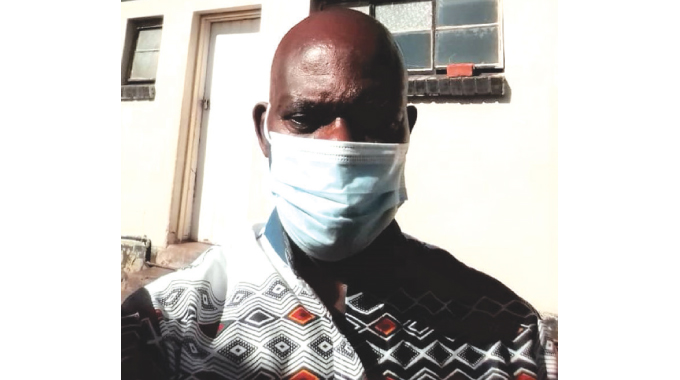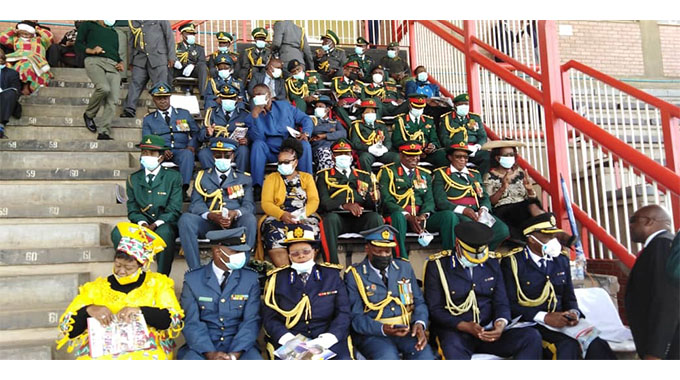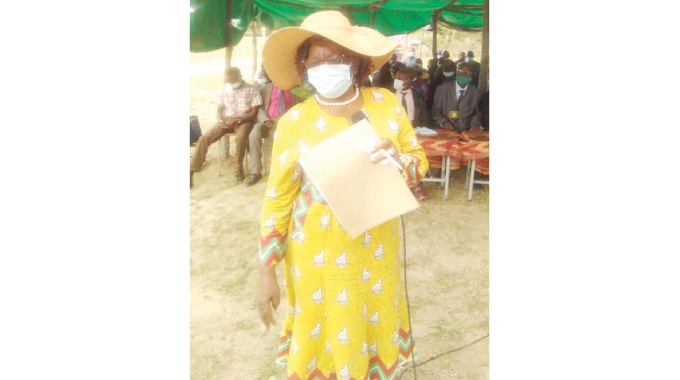Life after independence: War veterans speak

Blessing Karubwa, Features Reporter
WHILE a number of war veterans have permanent physical and psychological scars as constant reminders of the war of liberation that they fought, they say they are happy that the country recognises their effort through the Constitution.
THE Constitution of Zimbabwe states that, ‘Zimbabwe is founded on respect for the following values and principles — recognition of and respect of the liberation struggle, the principles of good governance, which bind the State and all institutions and agencies of government at every level, including recognition of the rights of veterans of the liberation struggle.
The State and all institutions and agencies of government at every level must accord due respect, honour and recognition to veterans of the liberation struggle, that is to say— those who fought in the War of Liberation, those who assisted the fighters in the War of Liberation, and those who were imprisoned, detained or restricted for political reasons during the liberation struggle.’
In that light the Government has accorded them due recognition for their contribution to the liberation of Zimbabwe through suitable welfare services such as pensions and access to basic necessities such as education.
From the 1960s to the late 1970s, Zipra and Zanla guerrillas fought a protracted war against the colonial regime of Ian Smith, culminating in Independence in 1980.
In Rhodesia, blacks were ruled by an all-white government and they were not allowed to participate. Only whites were granted the right to vote and elect the leaders. Laws were passed which prohibited the presence of Africans in many public places.
Black people’s freedom to vote, movement, association and speech just to mention a few were curtailed.
The end of British colonial rule in 1980 marked the creation of Zimbabwe after the protracted liberation struggle. Independence brought many benefits to the indigenous people who were deprived of means of production by successive colonial governments.
Zimbabweans remember the anniversary of their country’s independence from foreign rule on 18 of April every year.
This year’s Independence Day celebrations were held under the theme: “Zim@ 42- Leaving no one and no place behind” in line with the Second Republic’s drive towards the promotion of national unity, devolution and decentralisation.

War veterans say the Uhuru celebrations brought back some memories of the execution of the liberation struggle.
A war veteran, Cde John Ndlovu (64), said the sense of being free brought quite a lot of joy to the generality of Zimbabwe.
Cde Ndlovu said the coming of independence brought relief to black people as they now own the means of production.
“Before independence life was not so smooth, we were confined. It was after independence that we started visiting places which we were not allowed to visit. Our salaries were not equal with the whites even when doing the same job,” he said.
Cde Ndlovu urged peace in the country saying it was unity and peace that bring about the development of the country.
He encouraged the citizens to value Independence Day adding that things may not be fairly well economically but he was happy that the country was enjoying independence.
“As veterans of the liberation struggle, we feel very proud of the work we did. This should be the day that is respected by everyone. We are a liberated country where our rights are honoured, women and children are dignified and young people have opportunities to develop themselves,” said Cde Ndlovu.
Organising secretary for ex-detainees and political prisoners Cde Cleophas Sibanda said being an independent nation and being a country that is able to rule itself are achievements that make him happy.
“We are happy that the Government is still remembering us for the work that we did. We have been given land and we are now enjoying our rights as a country. I encourage even the youths to take part in the independence celebrations as we are all enjoying the fruits of the liberation struggle,” said Cde Sibanda.
Another war veteran, Cde George Tshabangu, said independence is a time to look back where the country is coming from and reflect on where it is going. He said Independence Day is a sign that the country has attained political freedom.
He said the new generation should be taught about the country’s history so that they appreciate the sacrifice that their elders made.
“Current and future generations need to be taught. Look at the Russians, look at the Chinese their children are taught from kindergarten, their historical background, but in our case, we are somehow missing a point. Our children do not know their history, they are polluted.
The ideology that shaped nationalism should be carried on by the young generation so that they can understand why we took up arms and fought the liberation struggle and brought about this independence that we are celebrating today,” said Cde Tshabangu.
According to Cde David Nduna Mlilo, the liberation struggle brought empowerment to the people of Zimbabwe.
He said it was going to be impossible for the citizens of Zimbabwe to own land, get access to education and own companies if war veterans had not responded to the call to join the liberation struggle.
He encouraged the honouring of the heroes and heroines and said he was happy that it was a constitutional provision which means the Government recognizes the work they did.
“Accessing education was not as easy as it is today. We used to complete school at Standard Six which is now Grade Seven.
If one wanted to pursue education they were supposed to move from rural to urban areas, a move which was not as easy as it is today. Life has totally changed, wealth is now for everyone, a situation which was taboo in our times,” said Cde Mlilo. – @ BlezarKarubwa.











Comments